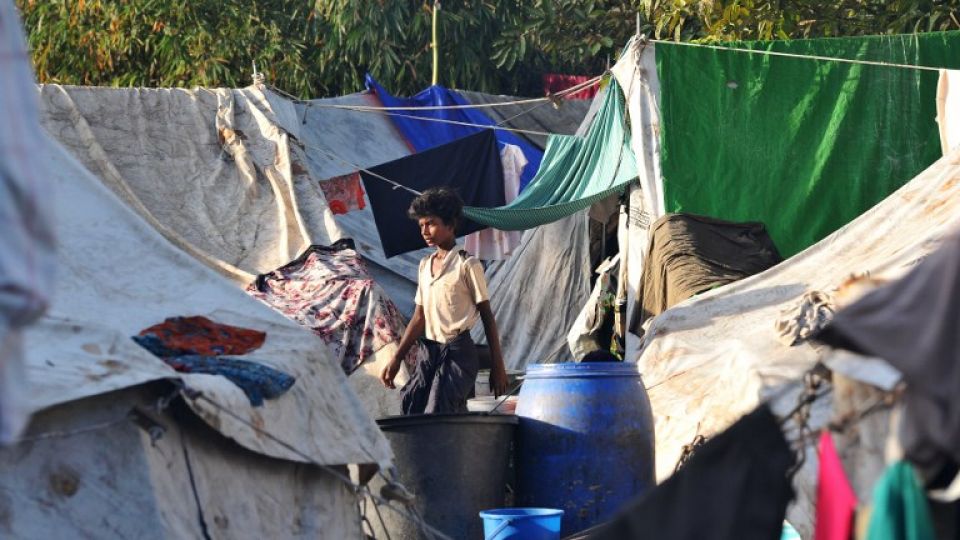August 27, 2019
The unit will patrol refugee camps for crimes being committed.
A brand new 800-member police battalion may soon be formed to deal with the rise in crimes committed by refugees from Myanmar in the 30 Rohingya camps in Cox’s Bazar.
It would be the second such special unit in district, as one had already been approved at the end of last year.
The new battalion, which is considered needed on an emergency basis, is just one of the suggestions submitted by the district police to the Police Headquarters in May. The others include setting up a temporary court in either Ukhia or Teknaf, forming three police stations and a number of police investigation centres, and installing closed-circuit television (CCTV) cameras at different points in the camp, along with a security fence around the camps’ perimeter.
The measures are aimed at reducing the rising crime rates and prevent further untoward situations.
According to data from the district police, 76 cases were filed against Rohingyas in 2017. The number has already risen to 187 till August 25 of this year. Around 471 cases have been filed against 1,088 Rohingya since 2017.
SM Akteruzzaman, assistant inspector general (AIG), organisation and management of the Police Headquarters (PHQ), told The Daily Star yesterday that the proposal for another unit was pending approval from the home ministry. “But the file has started moving forward and we are hopeful that it will be approved soon.”
The AIG said they had proposed setting up two specialised units for Rohingya camps last year, but the ministry approved only one.
The special unit approved, Armed Police Battalion (APBn-14), boasts a force of 588 officers, including a superintendent of police (SP) as it’s commanding officer. It began working on December 27, said Sohel Rana, assistant inspector general of PHQ.
The unit replaced some 725 officials who were temporarily deployed in the area from different ABBn battalions. Some 225 policemen from the Cox’s Bazar district police are also working with the special unit to maintain law and order, according to officials.
Rakib Khan, acting commanding officer of APBn-14, told The Daily Star yesterday that they had officially started in December last year, but were yet to fully start their operational activities as they were still setting up their offices.
“Despite working for UN foreign missions, we do not have the experience in dealing with foreigners in our own country. Not only do we have to ensure their security, we also have to curb the crimes committed by them, which is a big challenge,” Rakib said.
A home ministry high official requesting anonymity said the approval of the new unit was taking time as the Rohingyas were not permanent residents of the country and were subject to repatriation.
“We have to think about the use of the battalion after the Rohingya repatriation is completed, as there is a financial cost involved in it,” the official added.
“The situation is still under control in camps, but we need to be cautious as it can deteriorate,” ABM Masud Hossain, superintendent of police (SP) of Cox’s Bazar told The Daily Star yesterday.

Masud said that police registered a monthly average of 18 to 20 cases against Rohingyas, whereas the number was 150 for the local population of 4.7 lakh. “But, the number of cases against Rohingyas is rising and untoward situations can take place in the future as around 11 lakh people are living there together,” he said.
Currently, there is one police officer for every 1,353 Rohingyas. The new battalion would bring the ratio down to 1:681. The United Nations standard is 1:400.
Interestingly, according to police data, the police to people ratio for all of Bangladesh is one police officer for every 750 persons.
SP Masud said the Rohingyas were involved in different types of crimes like murder, human trafficking and narcotics smuggling.
According to police intelligence some Rohingyas have formed different crime gangs like “Hit Point Group” and “Al Yeakin group”. While the number of reported crimes is already high, intelligence officials working in the camps say it could be the tip of the iceberg as many incidents go unreported.
Some among the refugees have attacked police, killed a local politician and have also murdered other Rohingyas over internal feuds, they said.
On Sunday night, Rahim Ullah, 25, was stabbed to death by another Rohingya over internal feud in Kutupalong camp, said Abul Munsur, officer-in-charge of Ukhia police station.
Two days earlier, Jubo league leader Omar Faruk, 30, was shot dead by a group of Rohingya miscreants. Three Rohingyas involved in the murder were killed in a gunfight with police, said SP Masud.
According to police database, around 33 Rohingyas were killed in gunfights with law enforcers so far.
MORE SECURITY, JOBS MULLED
The district police in a special report sent to PHQ on May this year said the Rohingyas were going to different places from camps using the hilly areas of the district.
Against this backdrop, the police recommended building security or barbed-wire fences enclosing the Rohingya camps.
According to the UN Refugee Agency’s emergency handbook on minimum standards and best practices in developing emergency response camps, the setting up of security fences depends on the circumstances involved.
The police report also mentioned installation of CCTV cameras in important places in the Rohingya camps.
In the special report, police also requested setting up small handicraft producing houses as most of the Rohingyas were unemployed, which could be a reason behind the increasing crime rate.
Presently, Bangladesh hosts some 11 lakh Rohingyas, of whom 743,000 came during the latest influx following the brutal military crackdown in Rakhine State beginning on August 25, 2017.


